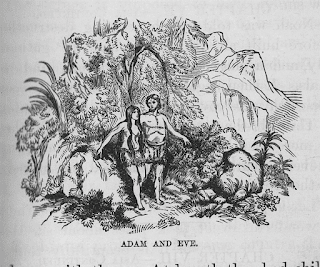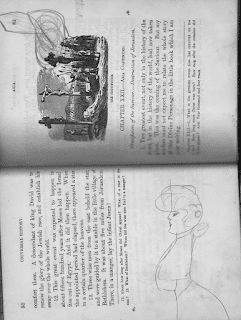Now here is a topic about which I could write without end. But I am going to use just one small example, about which I am nearly certain you have not heard.
A
few decades ago, I bought an old, torn-up book from a cheap bookstore in
Champaign, Illinois called Acres of Books. It (not to be confused with the
California store by the same name) seems to have gone out of business. I bought
it for five cents. It was Parley’s Universal History, published in 1886
as a children’s summary of world history from the viewpoint of triumphant white
American males. It was meant as a catechism for students to recite the facts of
history. It started with Adam and Eve being driven out of the Garden and ended
with Abraham Lincoln and the glorious triumph of the Grand Army of the Republic
over the Confederacy which, to the author, was the climax of human history.
Supposedly today we value critical thinking over rote memorization, although in conservative religious schools the latter may still predominate. Here in Oklahoma, teachers are afraid to question creationism, global warming denialists, anti-vaxxers, and those who deny that the Tulsa Race Massacre happened. It makes me wonder if we have made much progress since 1886. Remember, this was almost thirty years after the Origin of Species.
But
the most interesting thing about this shabby book is that one of the students,
almost certainly an adolescent boy, filled the book with hundreds of pencil
sketches, mostly of a woman who must have been his teacher. This was back in
the days of long skirts, bustles, frilly blouses, and fancy hair. These doodles
showed a fixation upon and exaggeration of the woman’s considerable bust. None
of the drawings showed any bare skin except the face, and the face was often
unclear. A hormonal adolescent can fixate upon anything even remotely sexual.
My point is that the boy was not thinking critically or carefully about what he was being taught in the book. He just soaked it up. His mind was on other things.
And
this is how we come to believe many things. We soak them up uncritically while
our minds are wandering over other things.



No comments:
Post a Comment